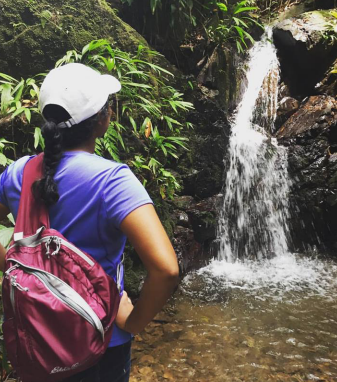Audiences lined up outside the door on Wednesday night of April 5 in the Busch Student Center, eager to see Billikens for Clean Water’s Atlas presentation on St. Louis’ water crisis.
This presentation covered the history of lead poisoning in the water of St. Louis, and how that interacts with class and race.
According to the presenters, infrastructure in the United States is in decline right now. Lead in paint and pipes has been an issue from the 1960s until today. Lead poisoning is irreversible. Victims can be hospitalized and treated but not cured, especially once the lead enters their bones.
East and North St. Louis’ poorest and highest minority populations have the most lead in their water. These include areas with 85 percent or more minority populations with household incomes ranging from $20,000- $40,000 a year.
In comparison, the three wealthiest suburbs in St. Louis, Frontenac, Ladue and Town and Country, have annual household incomes ranging from $100,000- $200,000, and 90 percent or more of these populations are white. When tested, these communities have little or no lead in their water.
“Water is a right, not a privilege,” former Billikens for Clean Water president Shalini Raichur said. She remains involved with the group, helping plan meetings and going on trips.
After their research, the presenters asked themselves questions: Why was lead found in water in primarily low income communities? And why is it such an underrepresented issue?
To answer these questions, Billikens for Clean Water is pursuing advocacy about this issue and is looking to test water in schools and homes in St. Louis.
They want to “have a backing, a community to fight for people’s right to clean water,” Ashley Gomel, president of Billikens for Clean Water said. “We have a lot of work to do…someone has got to do it.”
The group believes government and policy is a problem when it does not enforce checking water at schools and daycares, as well as not checking the children for lead in their bodies. One way people looking to make a difference can help is by writing to and/or calling the government about enforcing laws that test water and children for lead.
Billikens for Clean Water meets about once a month and has sent a group to Honduras recently over spring break.
They are looking to build relations with this community by developing a water system for a rural town there based on what the residents of this community desire. Implementation of the water system is expected to take place during winter 2017 or spring 2018.
During the spring breaks of 2016 and 2017, a group of these Billikens also travelled to Flint, Mich. to interact with the communities affected by the water crisis there and hand out water bottles.
Additionally, they appeared at Saint Louis University’s Public Health Fair at the beginning of April.
“When people come together, that is when change is made,” Gomel said. “Change isn’t made with fear. Find humanity in others to see our brothers and sisters as brothers and sisters.”






